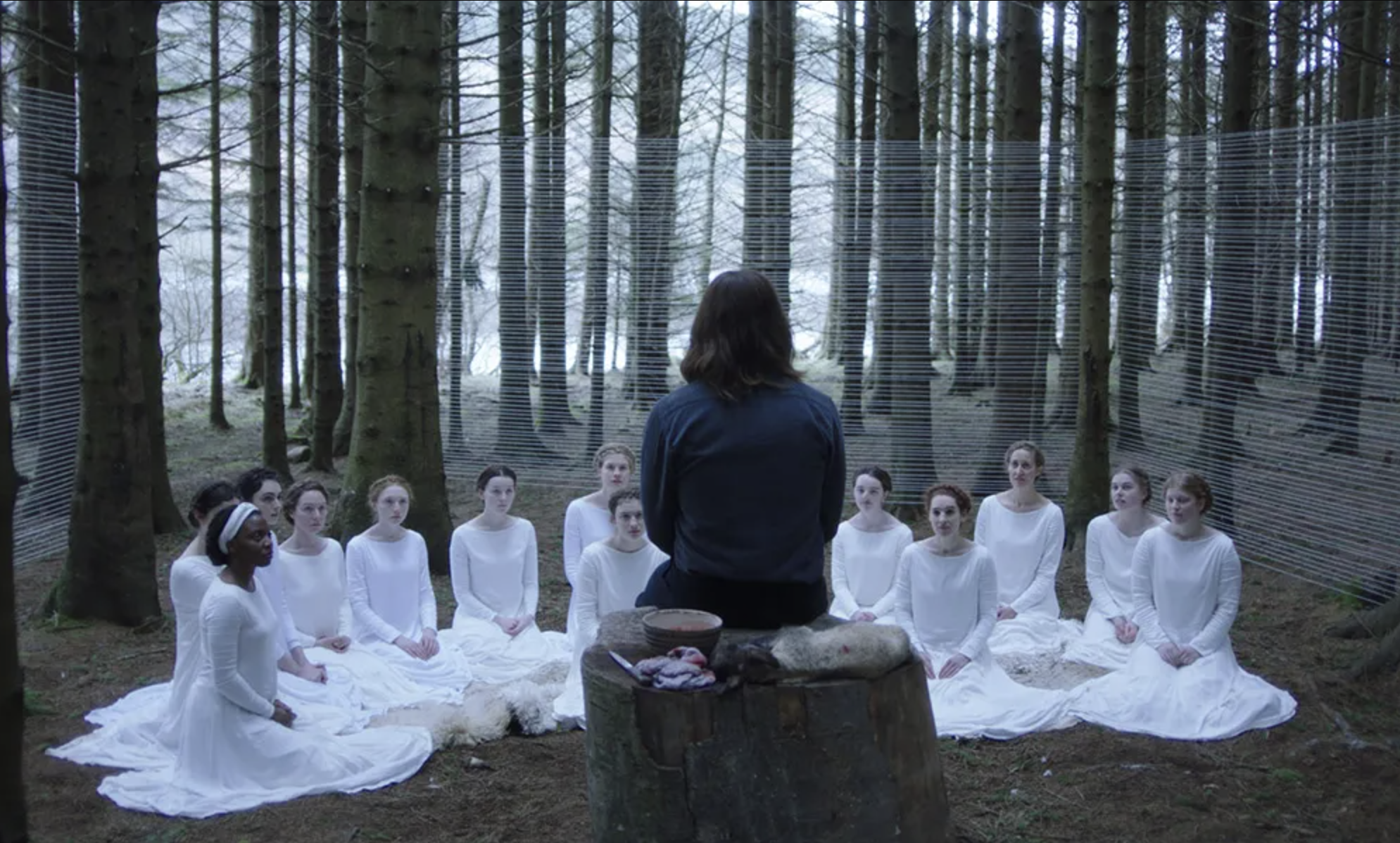25 Oct 2021
7 Min Read
Alvina Gerard (Guest Contributor), Ailyn Low (Editor)
If you’re a fan of the show American Horror Story (AHS), you’re probably familiar with Season 7 where their plot revolved around a cult. However, cults are an all-too-real thing that happens even outside the gruesome realms of the AHS plotline. In fact, it's closer than you may think.
Did you know that in Malaysia, there are several cults that gained their fame? Making headlines are cults such as the Teapot Cult where a Malaysian claimed to be a living incarnation of Jesus, Shiva, Buddha, and the Prophet Muhammad. He lived in a huge colorful teapot in Terengganu, which was known to be called Sky Kingdom when it started in 1979, and had 22,000 followers calling him 'Ayah Pin'.
The ideation behind cults have always been something that sent chills down our spine — from cults that practise abusive rituals to complicated beliefs about aliens. As we listen to these stories from the outside, we gain the experience of a listener but what truly happens to those who experience it firsthand, how they view the world after being isolated from it, and what led them to even go into it remains a mystery to many and may baffle us.
In an attempt to put the fire out to these mysteries, we put together 10 unique facts about the psychology behind cults.
Members who join are often from a vulnerable group of society and are often drawn to it to satisfy their need to belong to a group which complies to Maslow’s Hierarchy of Needs where the need to belong and have intimacy are a part of human’s growth and needs. This is similar to what we do, such as joining clubs in university.
The difference is that those drawn to cults are often led by the wrong crowd which leads to something way beyond what they’re looking for and often more sinister than what it appears to be. With enough persuasion that the system they’d be a part of is good for them, they’ll believe in these claims.
It’s found that cult leaders such as Charles Manson of the Manson Family often use plural first-person and second-person pronouns such as ‘we’ and ‘you’ or ‘yours’. The usage of this kind of language is often used in persuasive communication in order to draw followers to them and initiate a sense of ‘family’ and belonging. However, it often changes depending on the context they’re placed in.
It may sound terrifying but cult recruiters often hang around and seek their next victims in places where people feel the most vulnerable, out of touch, or mentally devastated. Why? Imagine being told that all your worries, stress, and heartaches would be answered if you but listen to a particular person. Coupled with heightened stress, isn’t that an enticing offer?
Hence, many ‘cult recruiters’ can be seen in places like campuses, seminars related to spirituality, and even support groups where easier targets can be found.
Now I know what you may be thinking: Wait a minute. Wouldn’t the leader be controlling the crowd? Yes and no.
Oftentimes cult leaders are looked at as people who are charismatic, charming, and subtly manipulative. But truth be told, leaders can only be that way if the followers comply with their ways. According to a study done on personality cult in modern politics, a leader’s role isn’t an entity that can be ‘possessed’ and ‘used’ whenever and wherever they wish. Rather, it’s a combination of having a charismatic leader and followers that acknowledge and are devoted to them.
So technically, the existence and directions of cults is subtly controlled by followers that want to believe in their leader.
There are many theories that answer the ‘why’ of the above statement.
However, the prominent ones are that women tend to be more susceptible to join as they’re more inclined to attend social gatherings and religious groups according to Dr. David Bromley, a sociologist of Virginia Commonwealth University that specialises in the study of ‘new religious movements’.
In fact, his study shows that women in cults are often ‘empowered’ to embrace their sexuality and embrace family life — despite it being an abusive one when it’s on the outside looking in. Which leads me to my next point...
Alvina’s Corner: Fascinated on how psychology plays a part in our lives? Check out how you can establish a foundation in psychology here.
Both the victims of cults and abusive marriages are often left feeling trapped, lost, and demoralised in the relationship.
The victims are often stripped of power over themselves — whether they notice it or not. In both situations, the victim is offered ‘love’ through protection, stability, and a home (again, meeting their sense to fulfill their basic needs) with the cost of being punished on a whim if you disobey their orders.
Childhood trauma is known to be the start of many toxic personality traits.
However, some affect individuals to an extreme level — even cult leaders. A prominent example would be David Berg, founder of the Children of God whose own childhood guilt and trauma over sexual issues translated into highly eroticised and sexualised group practices (including the likelihood of widespread child sexual abuse).
What’s undue influence? It’s when someone persuades another person which, in one way or another, causes the person to not act on their free will resulting in inequity. People can be unduly influenced by deception, flattery, trickery, coercion, hypnosis, and other techniques.
You may think, 'why would I follow someone who would undermine me?' Well, done on a vulnerable person who’s already susceptible to such influences would result in easier coercion in joining a cult.
Though difficult to leave a cult, there are many that have freed themselves from it.
However, is one really freed from its effects? Unfortunately, many members of cults are immersed in destructive practices that affect them mentally and could experience identity confusion, panic attacks, fear of intimacy, and much more. Thankfully, not all is lost with the help of professional mental health practitioners, rehab centers, and support groups.
We tend to view cults in the lens of horror movies, stories, and documentaries, thinking that it wouldn’t happen to us in the slightest bit. The scary part is that there’s so much unaware risk of being dragged into without a second thought without even knowing!
Whether it’s disguised as an empowerment seminar or a simple self-help group, danger may be closer than you think. In a time and space where there are endless opportunities to reach out to people globally, it’s highly vital for us to be aware and equip ourselves with the basic understanding of cults to help combat the influences of such dangerous organisations.
As they say, prevention is better than cure — and this goes beyond just your physical well-being.
Alvina Gerard is an alumni of the Bachelor’s Degree in Psychology programme at Taylor's University. She was also a part of her very own passion project of spreading awareness and educating people about self-care and body positivity!


